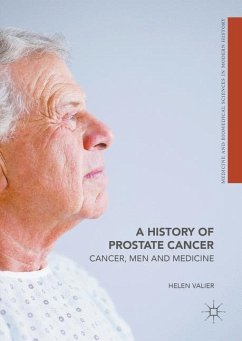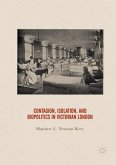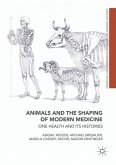This book offers a comprehensive and inclusive insight into the history of prostate cancer and its sufferers. Until recently, little practical help could be offered for men afflicted with the devastating diseases of the genitourinary organs. This is despite complaints of painful urination from aging men being found in ancient medical manuscripts, despite the anatomical discoveries of the European Renaissance and despite the experimental surgical researches of the eighteen and nineteenth centuries. As diseases of the prostate, including prostate cancer, came to be better understood in the early twentieth century, therapeutic nihilism continued as curative radical surgeries and radiotherapy failed. The therapeutic 'turn' came with hormonal therapies, itself a product of the explosive growth of U.S. biomedicine from the 1940s onwards. By the 1990s, prostate cancer screening had become a somewhat ubiquitous but controversial feature of the medical encounter for American menas they aged, which greatly influenced the treatment pathways and identity of the male patient: as victim, as hero, and ultimately, as consumer.
"Valier takes on the ambitious task of writing a history of prostate cancer from ancient times through to the present day. ... This book-length treatment of prostate cancer is a much-needed addition to cancer history. Valier does a good job of indicating areas of interest and potential further inquiry in her important subject." (Laura Dawes, The British Journal for the History of Science, Vol. 50 (2), June, 2017)
"The text is well written, scholarly and richly referenced, making it a useful starting point for learning about the history of prostate cancer in all its aspects. ... Valier delivers a worthwhile lesson about the unintended consequences of medical innovation that is relevant to the trainee doctors, healthcare professionals, biomedical researchers, industry executives and policy makers who will determine how new technologies affect the wellbeing of the public in the future." (Edward J. Wawrzynczak, BSHM British Society for the History of Medicine, bshm.org.uk,October, 2016)
"The text is well written, scholarly and richly referenced, making it a useful starting point for learning about the history of prostate cancer in all its aspects. ... Valier delivers a worthwhile lesson about the unintended consequences of medical innovation that is relevant to the trainee doctors, healthcare professionals, biomedical researchers, industry executives and policy makers who will determine how new technologies affect the wellbeing of the public in the future." (Edward J. Wawrzynczak, BSHM British Society for the History of Medicine, bshm.org.uk,October, 2016)








